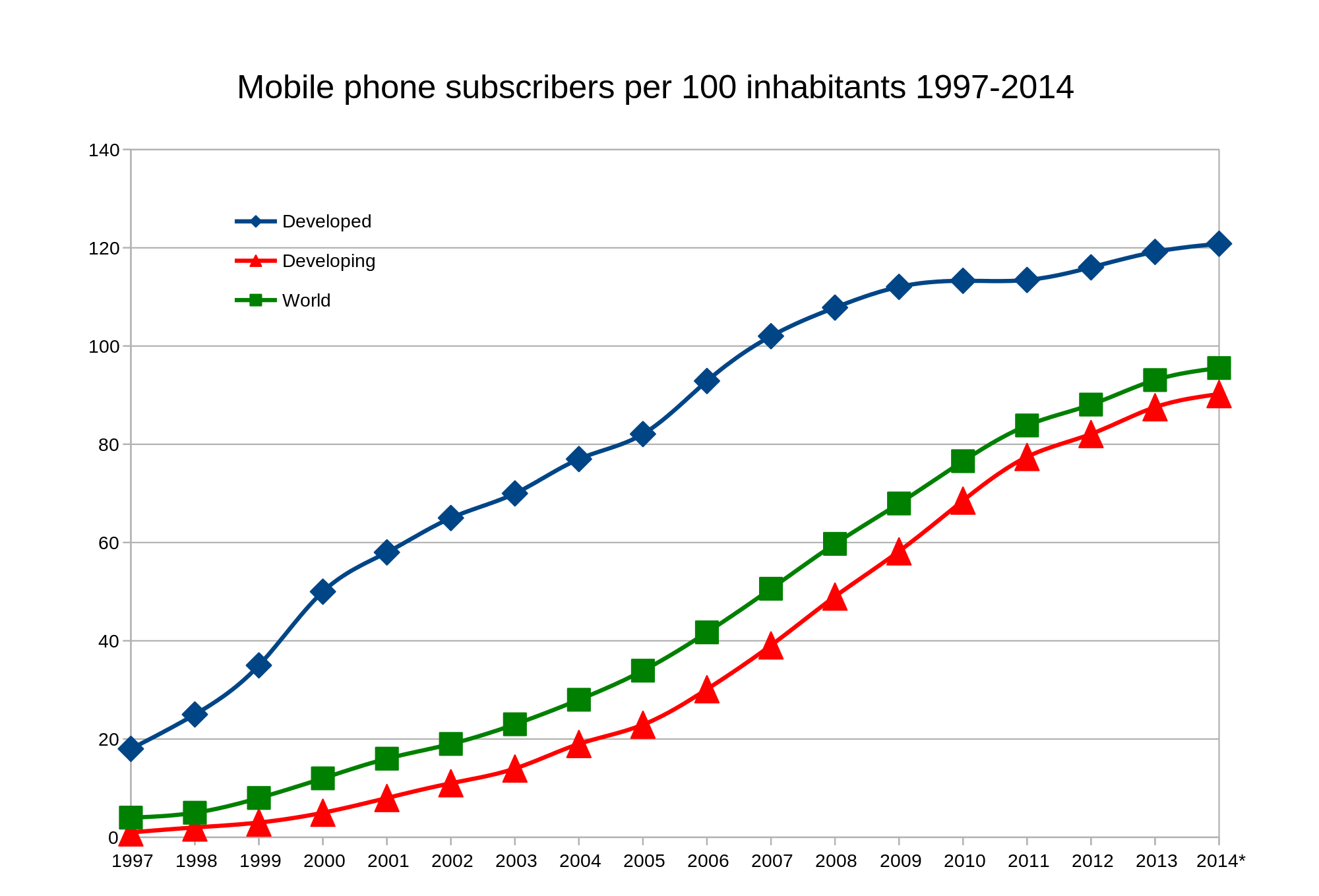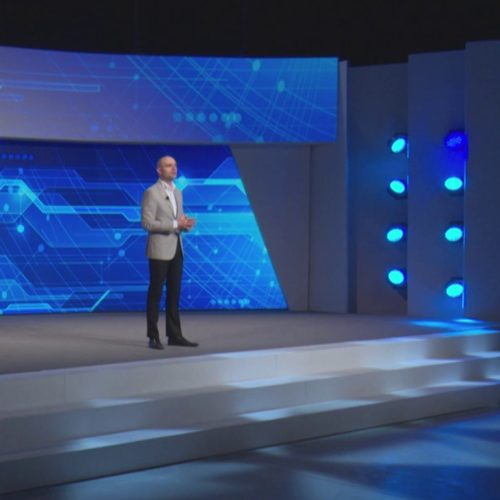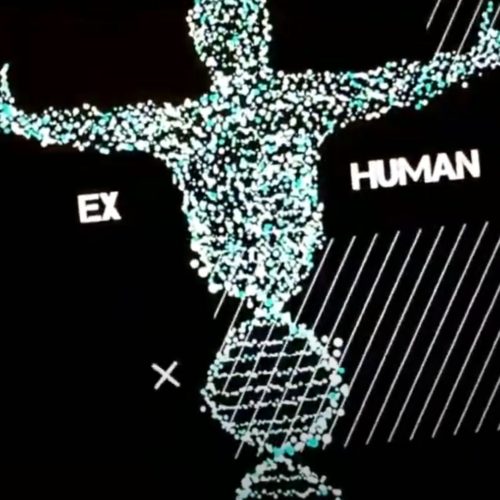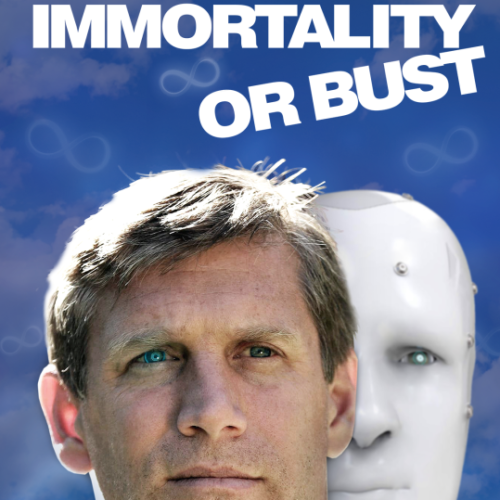Will technological unemployment impoverish us?
Steve Morris / Op Ed
Posted on: January 4, 2016 / Last Modified: January 4, 2016
The popular view
It’s common in contemporary sci-fi movies to see the future portrayed as a place of vast inequalities, where a tiny elite enjoys advanced technology and a life of leisure, while the masses slave away in poverty, in a polluted world stripped of resources. But sci-fi is very often not a vision of the future, but a mirror of our present-day concerns. So it is the case with concerns over inequality and fears of technological unemployment.
The worlds portrayed in these dystopian movies are filled with contradictions. Often the world’s resources have been depleted, and yet advanced technology exists, capable of generating cheap, unlimited energy. Often, this technology makes human work obsolete, yet the masses are depicted scrabbling in the dirt for a living. And the elite have access to unparalleled health, longevity and synthetic enhancements, while the masses live short brutal lives, without even twentieth-century standards of healthcare and comforts.

Of course, this is Hollywood, so conflict and injustice are the cornerstones of the plot. Inconsistencies are not the director’s prime concern. But these logical contradictions persist in people’s thinking. They prevent us seeing clearly where our world is headed.
Technology creates wealth
If we want to find real-world examples of a tiny elite living a pampered life, while the huddled masses toil in poverty, we can find them in the past, not the future. The defining feature of pre-industrial societies was their lack of technology. This led to inefficiency, requiring most of the population to engage in hard manual work for long hours, and with little to show for it, except poverty and subsistence.
Our present world is characterised by its extensive use of technology. Technology allows humans to achieve more with less work. It improves efficiency, reducing costs and creating wealth.
But whenever new technology reduces work, it necessarily puts workers out of jobs. This is the point of technology, after all – getting machines to do work, so we don’t have to. In the short term, for those who have lost their job, this is clearly a problem. In the longer term, and if we consider the whole of society – not just those who lost their jobs – the effect is universally beneficial, but those wider, long-term benefits are harder to see than the immediate suffering of the newly unemployed. If we focus all our attention on the problems, we may form the view that technology creates wealth for the few and poverty for the masses. In reality, the reverse is true – technology creates wealth for the masses, and its economic downsides are short-term.
The link between technological development and unemployment has been noted for centuries. Adam Smith, in his classic economics treatise of 1776, Wealth of Nations, wrote that, “a workman unacquainted with the use of machinery employed in pin-making could scarce make one pin a day, and certainly could not make twenty, but with the use of this machinery he can make 4,800 pins a day.” By implication, the invention of pin-making machinery rendered 4,799 pin-makers unemployed for every pin worker who kept his job. A queue of 4,799 unemployed men desperately looking for work is highly visible. What is less visible is the benefit to the rest of society of reducing the cost of pin-making by a factor of 4,800. The cost of living is reduced, and the money saved is spent on other goods and services, creating new jobs in other industries. It should be obvious that the net benefit to society as a whole is vastly positive, and that what is happening is a shift of employment from one industry to another, not permanent unemployment.

The history of agriculture in the United States is an excellent example of this process at work. The US Census reported that in 1870, agricultural workers comprised half of all workers and that agricultural technology was characterized by manual labor and horse-drawn machinery. By 1950 less than a fifth of all workers were agricultural workers, and tractors and electrical machinery had largely replaced the horse. Now, in the twenty-first century, hired farmworkers make up less than 1 percent of all US wage and salary workers. It is too obvious to point out that this has not led to vast unemployment, nor has it impoverished ordinary workers – quite the opposite.
In 1900, the average American family spent more than 40% of its total income on food. Now it is less than 15%. Food is cheaper, the money saved on food is spent on other purchases, and ordinary Americans are vastly wealthier as a result of technological progress in agriculture.
Is it different this time?
One of the most influential writers on technological unemployment in recent years, Martin Ford, in his books The Lights in the Tunnel, and Rise of the Robots, seems to accept that technological advancement creates wealth, but advocates that this time, things are different. Ford’s primary argument is that for the first time in human history, technological advancement threatens to make a large fraction of the human workforce permanently obsolete.
Looking at how the agricultural revolution rendered half of all US jobs obsolete, and how the industrial revolution had effects of similar magnitude, Martin Ford’s argument that “This time is different” seems difficult to justify. The principles of economics do not change. If Ford was writing in 1800, as steam-powered machines began to do the work of hundreds of men, or in 1900, as the introduction of tractors and other technology destroyed 30% of all American jobs in 50 years, he might well have arrived at the same conclusion. Indeed, Eleanor Roosevelt clearly felt the same when she wrote in 1945, “We have reached a point today where labor-saving devices are good only when they do not throw the worker out of his job.”
When it comes to economics, “This time is different” is a common refrain from down the centuries, but the evidence doesn’t support human obsolescence now, any more than it has done in the past.
Ford cites as evidence the stagnation of wages in the Unites States since the 1970s. Yet wages aren’t necessarily a useful statistic if we want to examine real wealth. Wages are affected by inflation, immigration, and other factors. Instead, if we look again at the proportion of income spent on food, this has continued to fall steadily throughout the twentieth century, and did not stop in 1970. The proportion of US personal income spent on food was 13.9% in 1970, falling to 13.2% in 1980, 11.5% in 1990, 9.8% in 2000, and 9.6% in 2010. Another indicator of American wealth is the proportion of families owning cars. In 1969, 80% of American households owned at least one car; 32% owned two or more. By 2009, car ownership had increased to 92% of households, with 58% owing two or more cars. This is a story of steadily growing affluence, not declining wealth, and is exactly what we would expect form the rapid developments in technology over the past 40 years.
The pace of change
What is undoubtedly true is that the pace of technological progress is faster than ever before and is continuing to accelerate. Thus, both the long-term benefits and short-term problems are increasing. For most people, in their everyday lives, it is the short-term problems that are most clearly visible, especially if they or someone they know loses their job.
Fortunately, we are well placed in the modern world to help with the transitions needed when jobs are made obsolete by technology. In Victorian London, the working classes were left to sink or swim as machines took their jobs. In the 1930s, society was able to do little to help those who lost their livelihoods in the Great Depression. Now, due almost entirely to the increased wealth that technology has given us, society has the means to offer transitional help to those who need it.
Inequality
Perhaps our real concern isn’t unemployment, but inequality. The fear is not that robots will do our work for us (which would be a good thing), but that unemployment will cut off our means of earning a living. In short, we are conditioned to see ourselves as workers, under the power of a wealthy elite. A popular narrative tells us that inequality is growing, and that capitalism, globalization and technology are the driving forces for this.
I beg to differ.
Technological efficiency creates wealth and raises living standards for the poorest in society as well as the rich – perhaps for the poorest most of all. It always has done and it always will. After all, in ancient times it was not Kings and Queens who had to carry water from the well, or plough the fields, but ordinary people. Mechanization benefits those who do the work.
Kings and Queens have always enjoyed leisure time and luxuries – now ordinary people do too. Our ancestors toiled in the field, and starved whenever droughts or famine hit. Now you and I are well fed (I presume), and have leisure time to read and write articles such as this.
An ordinary American born in 1900, worked an average of 60 hours a week and had a life expectancy of 47 years, whereas a modern American works 40 hours a week and can expect to live to 78.
The fact is that wealth becomes more available to more people as time goes on. Augustus Caesar (63BC – 14AD) ruled over an empire that accounted for 30% of the world’s economy, but he didn’t have access to even basic healthcare. Genghis Khan (1162 – 1227) ruled a kingdom that spread from China to Europe, but he didn’t use a cell phone, fly in a plane, or watch TV – activities that all of us take for granted. My point? That real wealth increases inexorably as time passes, for the poor more than for the rich, who have always enjoyed the privileges of luxury and leisure. This increase in the wealth of ordinary people is driven by technology.
If we’re really interested in the effects of technology on inequality, we should look beyond developed nations, and compare ourselves with those in the poorest countries. The big picture is not one of increasing, but of decreasing inequality.
In fact, the advancement of technology during the twentieth and twenty-first centuries has led to startling (and generally under-reported) changes in wealth, health and equality.
- In the past two decades, the number of people living in extreme poverty (at or below $1.25 a day) has halved from 2 billion to 1 billion.
- Life expectancy is increasing in every single country in the world. Even in the poorest nations, like South Sudan and Angola, in the past three decades, life expectancy has risen from 40 years to over 50 years, despite the HIV epidemic.
- One of the most encouraging statistics is that infant mortality is falling rapidly all around the world, and the fall is most rapid in the very poorest countries such as Afghanistan, Somalia and Sierra Leone.
The usual narrative of growing inequality that we’re constantly fed fails to capture what’s actually happening in the world. And as always, technology is the driving force for good.
Thanks to technology, poverty is diminishing at an unprecedented rate around the world, life expectancy is increasing, diseases are being eradicated, and more people than ever before have access to clean water. These are all exponential trends.

Accelerating technology, falling costs
A striking feature of new technology is that it benefits the poorest in society, not just the richest. In fact, it’s the most powerful force known for reducing wealth inequality. One of the myths perpetuated in Hollywood movies is that life-enhancing technology will be prohibitively expensive and available only to the elite. All the evidence points to the opposite being true.
Moore’s law that says computer processing power doubles every two years has a flipside – processing power halves in cost every two years. And Ray Kurzweil’s familiar graphs (after Hans Moravec) of exponential increase in technological capability can equally be used to show its exponential fall in cost.
Already, one of the most remarkable trends of the twenty-first century is how cheap and universal the latest technology is becoming. As of January 2014, 90% of American adults owned a cell phone. And as of October 2014, 64% of American adults owned a smartphone.
Globally, the picture is perhaps even more dramatic. As of May 2014, there were nearly 7 billion mobile subscriptions worldwide, equivalent to 95.5 percent of the world population.

Technology drives social change
Technology isn’t merely an engine for creating material wealth. It’s a powerful catalyst for social change. It’s no coincidence that the enormous growth in wealth in recent centuries has brought profound changes in social attitudes and human rights.
- The printing revolution was a necessary precursor to the rise of education, secularism and democracy in our modern world.
- The invention of machines for sowing seeds and harvesting crops made the abolition of slavery in 1833 a political possibility.
- Birth control and washing machines liberated women in the 1960s just as much as progressive social attitudes.
Again and again, technology has helped to break down social barriers, giving rights to minorities and the oppressed. It is the friend of the poor and the disadvantaged, not the enemy.
Capital and inequality
A lot has been written about capitalism, and how it must be overthrown, or superseded. If we fail to do this, it is said, in the future a tiny elite will control all the world’s wealth, while technological unemployment will leave the rest of us living in poverty. But that is not a vision of the future, it is Karl Marx’s vision of the industrial revolution in Britain in the nineteenth century.
Marx was wrong about the industrial revolution. Rural peasants flocked to the cities not to be exploited, but because the economic opportunities created by new technology made their lives better than before. While agricultural jobs were destroyed by technology, new industrial and commercial jobs were created. The factories raised income levels and life expectancy for the poorest in society. The murder rate plummeted. Famine became a thing of the past. The cost of essentials such as food and clothing fell dramatically. And social discrimination began to diminish, with women participating in the workforce in increasing numbers, and the fledgling feminist movement beginning amongst the middle classes, becoming a potent force for change as the nineteenth century progressed. The driving force for all these changes was technology.

Marx was wrong then, and predictions of future poverty are wrong too. It is the same error again. Marx saw the world divided into rich and poor. In his world view, the elite controlled the wealth and the means of production. Marx focussed his attention on how technology gave the elite ever greater power. But what Marx failed to see was how technology gave everyone more power over their lives, lowering costs for everyone, most especially the poor and disadvantaged. Now, in the twenty-first century, the means of production is just as likely to be held by a work-from-home tech entrepreneur or a mom-and-pop business as by a mega corporation. In the future, the means of production might actually be free.
Perhaps it already is, in some cases. My 12-year-old son is making and publishing his own YouTube videos. My 16-year-old son is learning how to code smartphone apps. The technology that enables this is empowering, and it is completely free.
Everywhere, barriers are falling. Want to write and publish a book? Traditional barriers to publishing have gone, and online tools enable anyone to publish their own e-book or paperback for zero cost. More music is being created and shared now than ever before. Crowd funding is unleashing a tsunami of creativity, and barriers to entry are being swept aside in the flood.
Marx was wrong – the means of production are becoming available to everyone, even the poorest and disadvantaged. The luddites were wrong – technology liberated the masses, not enslaved them. And today’s heralds of doom are wrong too – increased efficiency will create wealth and opportunity, and lift us all out of poverty.
In the Middle Ages, the wealthy elite owned land, and ownership of land was the means by which they exerted control over the population. In the nineteenth century and the first half of the twentieth century, control of mines, steelworks, railroads and oil gave the elite their power. Now, in the first part of the twenty-first century, knowledge is power, and corporations like Google, Apple, Microsoft and Amazon are key players in this knowledge-based economy. When knowledge is power and ideas are wealth, they can more easily be spread and shared. As long as we are careful not to create barriers to sharing, such as patents and IP protection, the source of wealth in the future can be made accessible to all.
What if robots do everything?
In the short- to medium-term, rapid advances in technology will make us more efficient, eliminate more jobs, create new ones to replace them, lower costs, improve standards of living, and reduce global inequality. Computers and robots will do more and more work, until ultimately, little or no human work will be necessary. Eventually a day may come when computers and robots really can do everything for us and jobs will be destroyed and not replaced. What then?

Extrapolating current trends too far is fraught with pitfalls. Remember poor Malthus, who extrapolated population and food production trends to predict global starvation in the eighteenth century? Let’s not make the same mistake again.
Errors come about by extrapolating certain trends (the tendency for jobs to be destroyed by new technology) and ignoring others (the tendency for new technology to reduce the overall cost of living). A dramatic increase in technological unemployment would necessarily go hand in hand with an equally dramatic reduction in the need for people to earn money.
Let’s consider an example of how this works in practice. The production of books by scribes was once a very slow and time-consuming process. Few books were produced, and the ownership of books was restricted to a wealthy elite. The invention of the movable type printing press by Gutenberg put those scribes out of work, but greatly increased the availability of books. And the unemployed scribes soon found new work in the ever-expanding printing industry, which continued to innovate in the centuries that followed. Waves of new printing technologies destroyed jobs, and created new ones, all the while bringing down the cost of books and increasing their availability.
Now, in the twenty-first century, those books, which were once available only to the privileged few, are now available to literally everyone. Much of what we now read (this essay, for example) is actually free. Imagine how that would play out if all goods and services were rendered essentially free.
This is the world we must try to imagine if we are to glimpse the future.
A common objection to this is to counter that the world’s resources are finite, and that as time goes by, their costs will rise because of scarcity. But again, this ignores the effects of technology. In particular, it ignores the fact that technology creates resources. Coal only became a resource once the technology to harness it was invented. Oil became a resource later, once the technology to drill, pipe and refine it became available. Solar power, computing power and healthcare are examples of resources that are currently growing exponentially. So new technology creates new resources, rendering old ones obsolete. That’s why peak firewood and peak horse are in the distant past, and peak coal has perhaps already been reached.
It’s also the reason why new industries are increasingly software-dependent, with zero marginal cost to produce and sell their wares. As writers like Ray Kurzweil have noted, zero marginal cost industries are poised to explode into the real world during the twenty-first century, reducing the cost of living in unprecedented ways, and probably upsetting governments whose economic and monetary systems are founded on a faith in relentless inflation.
Those who argue that automation will make 99% of the population unemployed, and concentrate all of the wealth in the 1% who own the robots, are making simple errors. They ignore the fact that total automation will make the cost of goods and services tend towards zero, eliminating the need for money all together. In any case, the scenario is a logical contradiction. If working people lose their productive power by being replaced by machines, they will have zero purchasing power, and the greedy capitalists will have no source of income.
Projections of future poverty due to technological unemployment are fallacies. Instead, imagine a future where robots and computers do all the work. They grow, mine, harvest and collect all the raw materials necessary for this. The robots also repair themselves, and manufacture more robots when needed. They even design new and improved versions of themselves, so that ever more work can be done. In this future, nobody needs to work. Nobody is paid to work. Nobody has any money, because none is needed. People can spend their time doing whatever they want.
What will people do when they no longer have to work? Technology doesn’t render people useless – it enhances their creative potential, and expands their options enormously. That’s actually what technology is for.
Technological unemployment? Yes! Problem? No! Fantasy? Not necessarily.
Working towards a better future
Technology is making our lives materially better, and this trend is accelerating. Whatever happens next, it is almost certainly unstoppable. But we could still make the wrong policy decisions that will cause the future to be worse than it might otherwise be. The right policies will enable technology to deliver its benefits to all, without creating barriers to its adoption or ownership. They will also support those in need during the inevitable transition and turmoil as the world changes.
Transitional welfare payments will be needed to support those who cannot work, or whose skills have been rendered obsolete. Some economists have argued for the introduction of universal welfare. But logically, universal welfare would only become necessary if unemployment is universal. And in that case, who would the government tax to pay for the welfare? So perhaps our current system is the right way forward.
Old forms of wealth, such as agriculture and mining were resource-based, and tended to promote inequality. New wealth is knowledge-based, and can easily be shared and taught. To ensure that technological advances benefit everyone equally, we will want to ensure that they result in the cost of living falling to zero, or near-zero. A knowledge-based economy can reduce the costs of goods and services only as long as an efficient and competitive market operates.
So we will need to eradicate protectionism and barriers to trade. We will want to minimize intellectual property rights, so that knowledge becomes common and available to all. We will want to encourage industry standards and open source systems that promote competition and drive down costs, rather than proprietary software and operating systems that create artificial scarcity and inflate prices. We will want to disrupt monopolies wherever they occur, either in the private or in the public sectors. And we will want governments to refrain from imposing intrusive regulation that protects vested interests and discourages competition – such as in the banking, telecom and energy sectors, and most recently illustrated by attempts to regulate the Uber taxi phenomenon.
Many economists have long argued that we need all those things already.
Thanks to technology, the present is better than the past, and the future looks set to be better still. Unemployment isn’t our real fear. Poverty is. And the solution to poverty is technology. If universal technological unemployment does eventually happen, it will not be something to fear. It will mark the end of poverty, and bring to a close this chapter in human history.
About the author:
 Steve Morris studied Physics at the University of Oxford and spent ten years working for the UK Atomic Energy Authority. He now runs tech review site S21.
Steve Morris studied Physics at the University of Oxford and spent ten years working for the UK Atomic Energy Authority. He now runs tech review site S21.








